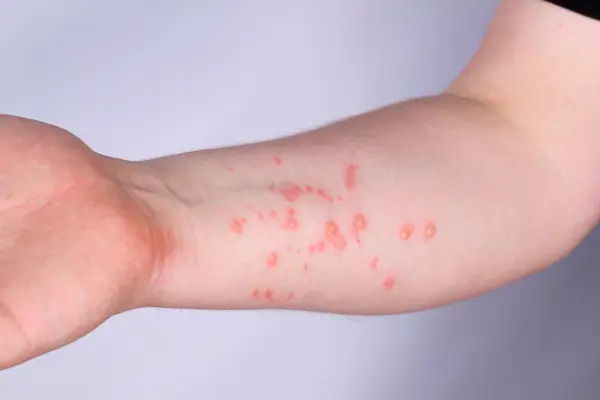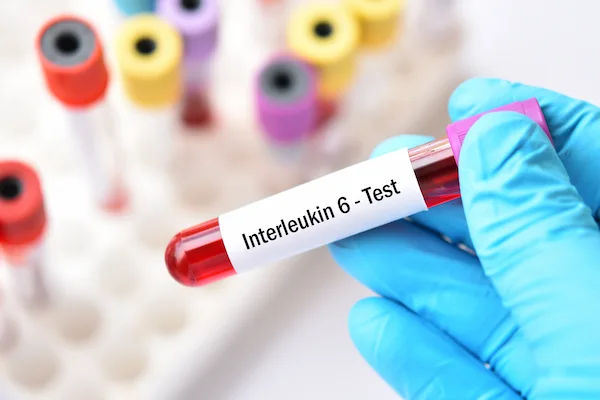Blood Transfusion Overview and Procedure Details
Discover what a blood transfusion is, why it’s done, the step-by-step procedure, preparation tips, possible risks, and aftercare for safe and effective treatment.

Written by Dr. Rohinipriyanka Pondugula
Reviewed by Dr. J T Hema Pratima MBBS
Last updated on 27th Aug, 2025

If you or a loved one has been advised to undergo a blood transfusion, you may have questions about what it is, why it’s needed, and what to expect. This guide will help you understand the basics of blood transfusion in simple terms, so you can feel more informed and at ease.
Consult a Haematologist for the best advice
What is a Blood Transfusion?
A blood transfusion is a medical procedure where donated blood or blood components (such as red blood cells, plasma, or platelets) are given to a patient through an intravenous (IV) line. This is done to replace lost blood due to surgery, injury, or illness, or to treat certain medical conditions.
Why Might You Need a Blood Transfusion?
There are several reasons why a doctor may recommend a blood transfusion, including:
- Severe blood loss – Due to surgery, accidents, or childbirth.
- Anaemia – Low red blood cell count, which can cause fatigue and weakness.
- Chronic illnesses – Such as cancer, kidney disease, or blood disorders like sickle cell anaemia.
- Bleeding disorders – Where the blood doesn’t clot properly.
- Bone marrow problems – When the body doesn’t produce enough healthy blood cells.
What Happens During a Blood Transfusion?
The procedure is safe and carefully monitored by healthcare professionals. Here’s what you can expect:
1. Blood Type Testing & Matching
Before a transfusion, your blood type (A, B, AB, or O) and Rh factor (positive or negative) will be checked to ensure you receive compatible blood. A small blood sample is taken for testing.
2. Donor Blood Screening
Donated blood is thoroughly tested for infections (like HIV, hepatitis, and other diseases) to ensure safety.
3. The Transfusion Process
- You’ll be seated or lying down comfortably.
- A thin needle is inserted into a vein (usually in the arm).
- The blood bag is hung on a stand, and the transfusion begins slowly.
- A nurse will monitor your vital signs (pulse, blood pressure, temperature) throughout.
- The process can take 1 to 4 hours, depending on how much blood is needed.
4. After the Transfusion
You may be observed for a short while to check for any reactions. Most people feel better soon after receiving blood, especially if they were anemic or had low blood volume.
Are There Any Risks or Side Effects?
Blood transfusions are generally safe, but like any medical procedure, there can be mild side effects, such as:
- Fever or chills – Usually mild and temporary.
- Allergic reactions – Itching or rash, which can be managed with medication.
- Fluid overload – Rare, but extra fluids may cause breathing difficulty in some patients.
- Infections – Extremely rare due to strict blood screening.
Severe reactions are very uncommon, but if you experience chest pain, difficulty breathing, or severe dizziness during or after the transfusion, inform your doctor immediately.
How Can You Prepare for a Blood Transfusion?
To ensure a safe and smooth blood transfusion:
- Stay hydrated – Drink water before the procedure to help with vein access.
- Wear comfortable clothing – Loose sleeves make it easier for the IV insertion.
- Inform your doctor – If you’ve had a transfusion reaction before or any allergies.
Recovery & Aftercare
You can support your recovery and aftercare after a blood transfusion by following:
- Rest for a few hours after the procedure.
- Avoid strenuous activities for the rest of the day.
- Drink plenty of fluids unless advised otherwise.
- Report any unusual symptoms (fever, weakness, or skin discolouration) to your doctor.
Alternatives to Blood Transfusion
In some cases, doctors may suggest alternatives like:
- Iron supplements – For mild anaemia.
- Medications – To stimulate red blood cell production.
- Blood-saving techniques – During surgery to minimize blood loss.
- However, if a transfusion is necessary, it’s because your doctor believes it’s the best option for your health.
When to Seek Help After a Transfusion
Contact your healthcare provider if you experience:
- High fever or severe chills
- Shortness of breath or chest pain
- Dark urine or yellowing of skin (jaundice)
- Unusual swelling or pain at the IV site
Final Thoughts
A blood transfusion is a life-saving procedure that helps millions of people every year. If your doctor has recommended one, it’s because the benefits far outweigh the risks. The process is simple, closely monitored, and can significantly improve your health and energy levels.
Consult a Haematologist for the best advice
Consult a Haematologist for the best advice

Dr Abilash Jain
General Physician/ Internal Medicine Specialist
12 Years • MBBS,DNB(FM),MNAMS,FIAMS,CCGMG(GERIATRICS),DGM (GERIATRICS),PGCD(DIABETES,BOSTON UNIVERSITY),FID(DIABETICS UK)CCEPC(PALLIATIVE CARE),CCCC(CRITICAL CARE)
Visakhapatnam
Apollo Clinic Vizag, Visakhapatnam

Dr.sanchayan Mandal
Oncologist
17 Years • MBBS, DrNB( MEDICAL ONCOLOGY), DNB (RADIOTHERAPY),ECMO. PDCR. ASCO
Kolkata
Dr. Sanchayan Mandal Oncology Clinic, Kolkata

Dr. E Prabhakar Sastry
General Physician/ Internal Medicine Specialist
40 Years • MD(Internal Medicine)
Manikonda Jagir
Apollo Clinic, Manikonda, Manikonda Jagir
(125+ Patients)
Dr. Velu Nair
Haematologist
36 Years • MBBS, MD (Med.), FRCP, FACP, FAMS, FICP, FIACM, FUICC, FISHTM
Ahmedabad
Apollo Hospitals Gandhinagar, Ahmedabad
(25+ Patients)

Dr. Prabu P
Haematologist
29 Years • MBBS, MD(Gen.Med.)(JIPMER) , MRCP, Dip RCPath, FRCPath, CCT(U.K), Haemato - Oncology.
Chennai
Apollo Hospitals Greams Road, Chennai
(500+ Patients)
Consult a Haematologist for the best advice

Dr Abilash Jain
General Physician/ Internal Medicine Specialist
12 Years • MBBS,DNB(FM),MNAMS,FIAMS,CCGMG(GERIATRICS),DGM (GERIATRICS),PGCD(DIABETES,BOSTON UNIVERSITY),FID(DIABETICS UK)CCEPC(PALLIATIVE CARE),CCCC(CRITICAL CARE)
Visakhapatnam
Apollo Clinic Vizag, Visakhapatnam

Dr.sanchayan Mandal
Oncologist
17 Years • MBBS, DrNB( MEDICAL ONCOLOGY), DNB (RADIOTHERAPY),ECMO. PDCR. ASCO
Kolkata
Dr. Sanchayan Mandal Oncology Clinic, Kolkata

Dr. E Prabhakar Sastry
General Physician/ Internal Medicine Specialist
40 Years • MD(Internal Medicine)
Manikonda Jagir
Apollo Clinic, Manikonda, Manikonda Jagir
(125+ Patients)
Dr. Velu Nair
Haematologist
36 Years • MBBS, MD (Med.), FRCP, FACP, FAMS, FICP, FIACM, FUICC, FISHTM
Ahmedabad
Apollo Hospitals Gandhinagar, Ahmedabad
(25+ Patients)

Dr. Prabu P
Haematologist
29 Years • MBBS, MD(Gen.Med.)(JIPMER) , MRCP, Dip RCPath, FRCPath, CCT(U.K), Haemato - Oncology.
Chennai
Apollo Hospitals Greams Road, Chennai
(500+ Patients)




